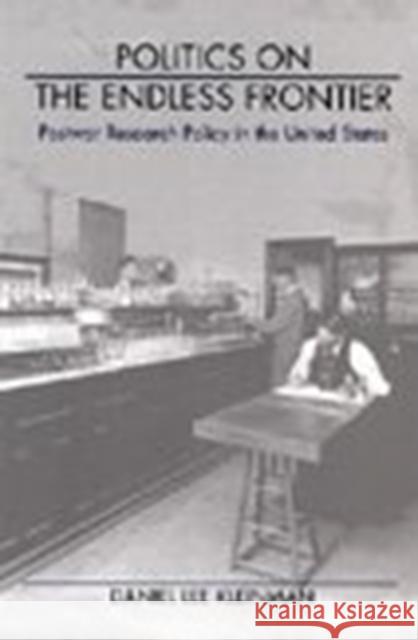Politics on the Endless Frontier: Postwar Research Policy in the United States » książka
Politics on the Endless Frontier: Postwar Research Policy in the United States
ISBN-13: 9780822315834 / Angielski / Twarda / 1995 / 264 str.
Politics on the Endless Frontier: Postwar Research Policy in the United States
ISBN-13: 9780822315834 / Angielski / Twarda / 1995 / 264 str.
(netto: 407,97 VAT: 5%)
Najniższa cena z 30 dni: 427,49
ok. 22 dni roboczych.
Darmowa dostawa!
Toward what end does the U.S. government support science and technology? How do the legacies and institutions of the past constrain current efforts to restructure federal research policy? Not since the end of World War II have these questions been so pressing, as scientists and policymakers debate anew the desirability and purpose of a federal agenda for funding research. Probing the values that have become embodied in the postwar federal research establishment, "Politics on the Endless Frontier" clarifies the terms of these debates and reveals what is at stake in attempts to reorganize that establishment.
Although it ended up as only one among a host of federal research policymaking agencies, the National Science Foundation was originally conceived as central to the federal research policymaking system. Kleinman's historical examination of the National Science Foundation exposes the sociological and political workings of the system, particularly the way in which a small group of elite scientists shaped the policymaking process and defined the foundation's structure and future. Beginning with Vannevar Bush's 1945 manifesto "The Endless Frontier," Kleinman explores elite and populist visions for a postwar research policy agency and shows how the structure of the American state led to the establishment of a fragmented and uncoordinated system for federal research policymaking. His book concludes with an analysis of recent efforts to reorient research policy and to remake federal policymaking institutions in light of the current "crisis" of economic competitiveness.
A particularly timely study, "Politics on the Endless Frontier" will be of interest to historians and sociologists of science and technology and to science policy analysts.











